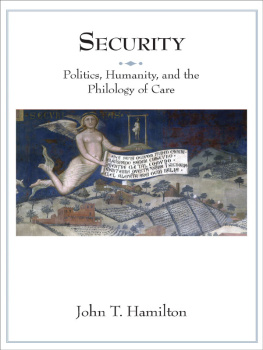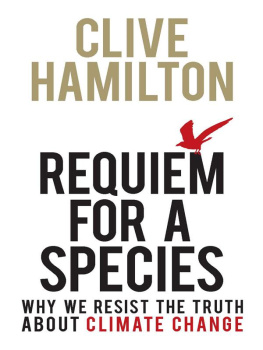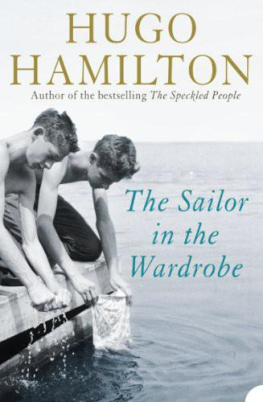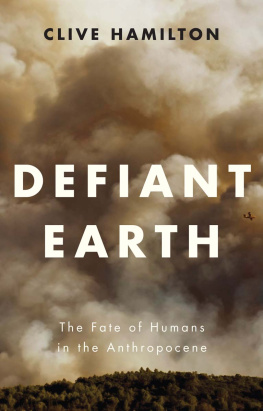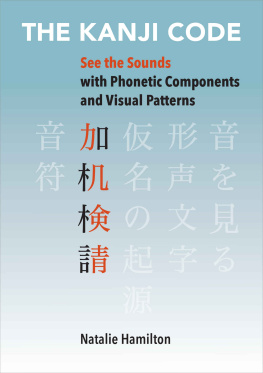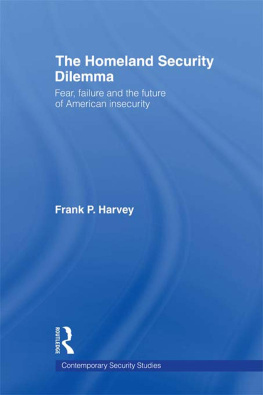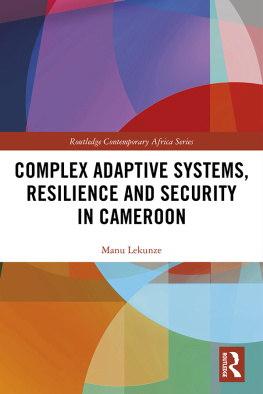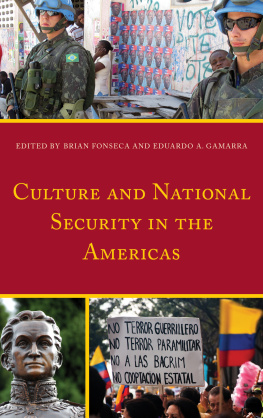
Security

A list of titles in the series appears at the back of the book.
Copyright 2013 by Princeton University Press
Published by Princeton University Press, 41 William Street, Princeton, New Jersey 08540
In the United Kingdom: Princeton University Press, 6 Oxford Street, Woodstock, Oxfordshire OX20 1TW
press.princeton.edu
Jacket art: Ambrogio Lorenzetti (fl.1317-48). Effects of Good Government in the Country, 133840. Fresco. Palazzo Pubblico Siena. Photo: Alfredo Dagli Orti. Courtesy of the Art Archive at Art Resource, NY
All Rights Reserved
Library of Congress Cataloging-in-Publication Data
Hamilton, John T.
Security : politics, humanity, and the philology of care / John T. Hamilton.
p. cm. (Translation/transnation)
Includes bibliographical references (p. ) and index.
ISBN 978-0-691-15752-8 (hardcover : alk. paper) 1. CaringReligious aspectsChristianity. 2. Caring. 3. Security, International. I Title.
BV4647.S9H35 2013
128dc23 2012032275
British Library Cataloging-in-Publication Data is available
Line from Finnish Rhapsody by John Ashbery, Notes from the Air 2008 John Ashbery by permission of HarperCollins Publishers.
Line from On the Shores of Politics by J. Rancire (Verso, 2007) by permission of Verso.
This book has been composed in Minion
Printed on acid-free paper.
Printed in the United States of America
10 9 8 7 6 5 4 3 2 1
For my Father,
who always advised:
Be good! And if you cant be good, be careful!
In memoriam
Quel beau livre ne composerait-on pas en racontant la vie et les aventures dun mot?
Balzac, Louis Lambert
Acknowledgments
WARMEST THANKS ARE DUE first of all to Emily Apter, who initially encouraged me to pursue this project. Her questions and interventions have been a source of inspiration throughout. I would also like to thank all the graduate students, at both Harvard University and New York University, who participated in my seminars on the topic of security. Many of the arguments and formulations contained in this book directly stem from these wondrously fruitful conversations. I am also grateful for having had the privilege to present earlier versions of my chapters at various institutions: Princeton University, Oxford University, the Universiteit Leiden, the Freie Universitt Berlin, and Berlins Zentrum fr Literatur und Kulturforschung. The project has benefited immensely from a conference on the topic, which I organized in 2008 at New York Universitys Humanities Initiative: many thanks to my colleagues Michle Lowrie, Jacques Lezra, Anselm Haverkamp, Jane Tylus, and to all the participants in helping me to actualize this exciting event. I am, indeed, particularly grateful to Michle Lowrie, with whom I first discussed the possibility of proposing security as the theme for NYUs Poetics and Theory Institute. We have since shared our manuscripts on the subject, and I have, as always, learned a great deal from her. An earlier version of appears in Terror and the Roots of Poetics, Jeffrey Champlin, ed. (New York and Dresden: Atropos, 2012), and I am grateful to the press for allowing its reprinting here. In 2009 I put together an especially engaging workshop on Security at Harvards Radcliffe Institute together with Michle Lowrie, Marc Shell, Kristin Ross, and Stefan Willer. Special thanks are due to them as well as to others who have read and commented on disparate parts of my work: Tamar Abramov, Homi Bhabha, David Damrosch, Beatrice de Graaf, Lauren Faraone, Paul Fleming, Maryam Monalisa Gharavi, Eckart Goebel, Martin Hgglund, Adriana Chimu Harley, Daniel Hoffman-Schwartz, Michael Levine, Richard Sieburth, Barbara Natalie Nagel, Eyal Peretz, Almut-Barbara Renger, Victoria Rimell, Avital Ronell, John Smith, Nikolaus Wegmann, Sigrid Weigel, Antje Wessels, and Cornel Zwierlein. Finally, loving thanks to my familyto Donna, Jasper, and Henrywho continue to support and sustain me with inspiring hope and thoughtful care.
PART ONE
Preliminary Concerns
Homo Curans
Dulcia sunt ficata avium sed cura gubernat.
Sweet are the livers of birds, but concern reigns.
Inscription from the Mithraeum beneath
the Church of Santa Prisca, Rome
AMONG THE HUNDREDS OF FABLES collected and revised by the Roman grammarian Hyginus (d. AD 17), one has proved to be particularly relevant among later poets and philosophers. The brief tale relates how Curaa personification of care, concern, anxiety, or troubleformed the first human being. Although many of the narratives details may be found in other mythic anthro-pogonies from a variety of cultures and traditions, Hyginuss account is the only extant version that ascribes the creative role to an allegory of Care. When crossing a shallow river, Cura spotted the banks muddy clay, gathered it up, and molded it into a figure. She then asked Jupiter, who was presently passing by, to breathe spirit into her freshly crafted work. The god readily obliged, yet became angry when Cura expressed her desire to name the animated figure after herself. Jupiter felt instead that the honor should be his. The debate escalated when Tellus, Earth herself, emerged on the scene and insisted that the new creation bear her name. To resolve the issue, the three antagonists summoned Saturn, who immediately pronounced judgment:
Jupiter, since you have given the spirit, take the soul after death; Tellus, since she provided the body, should receive the body. And since Cura first molded him, let Cura possess him as long as he is alive; but since there is a dispute over the name, let him be called homo, since he appears to have been made from humus. (Fabulae 220)
Thus the fable that began with creation ends with the designation of a name, with the determination of a species. The first phase concerns being, the second involves language. With this combination of ontology and semantics or nature and convention, we obtain not only an etiological explanation for one question (Why is the word for human being homo in Latin?) but also a philosophical anthropology that folds one question (What is mankind?) into another (What is mankind called?).
Although distinct, these two areas of concern are related insofar as both revolve around the issue of gift. Human being (homo) is portrayed first and foremost as a recipient, as a creature endowed with multiple donations from the gods: a form, a body, a spirit, and a name. These provisions are not freely given but rather impose a series of obligations or debts. Divine expenditure in the past requires human compensation in the future; and in this myth the human is not lacking in benefactors to whom his very existence is bound by inevitable, fateful duty, if not guilt. For the most part, the terms of exchange established by Saturn are sufficiently clear: man will ultimately owe his body to Earth and his spirit to Jupiter of the sky. Death would appear to occasion the final reckoning and settle all accounts. Yet, unlike the first gift of creation, the second giftthe gift of a namesparks a heated philological controversy among the gods, a dispute that is not as simple to reconcile. What obligation does a name incur? To whom or to what must man satisfy this debt? Can a designation, once ascribed, be returned to its source? And is the source itselfin this particular case, the source of concerneven nameable?
In terms of structure, the story of corporeal fabrication and subsequent animation is somehow deemed insufficient. The myth of mankinds physical and spiritual origin presents a whole that contains a lack, one that requires a further step, a narrative supplement that closes off but also opens up the story. Once body and spirit have been coupled, a single name must be found, one that would presumably secure the identity of the newly composed creature. Through name, the physiospiritual dichotomy that inheres in the galvanized corpus can be further reinforced as a recognized entity. Upon forming her creature, Cura does not fail to take care of this task. It is, indeed, unthinkable that Care would ever be so careless.
Next page
